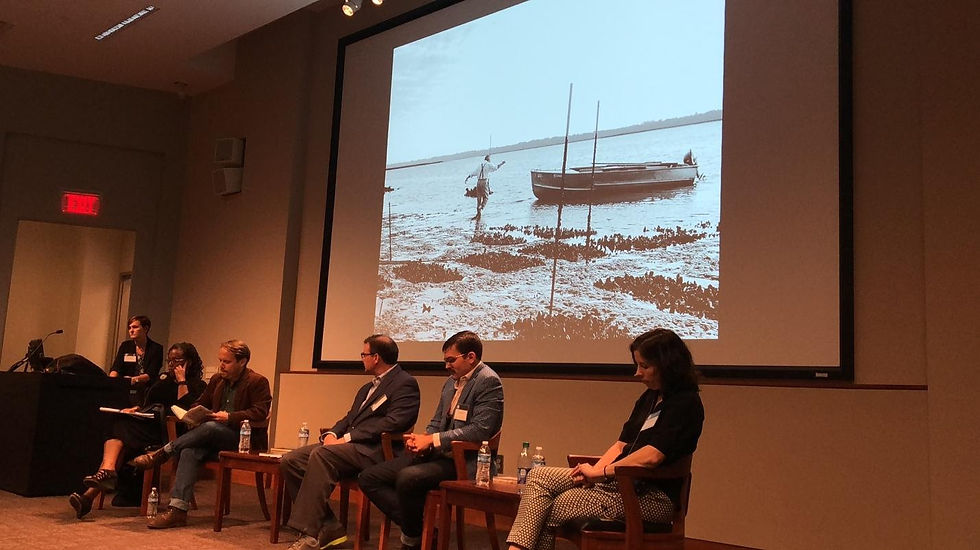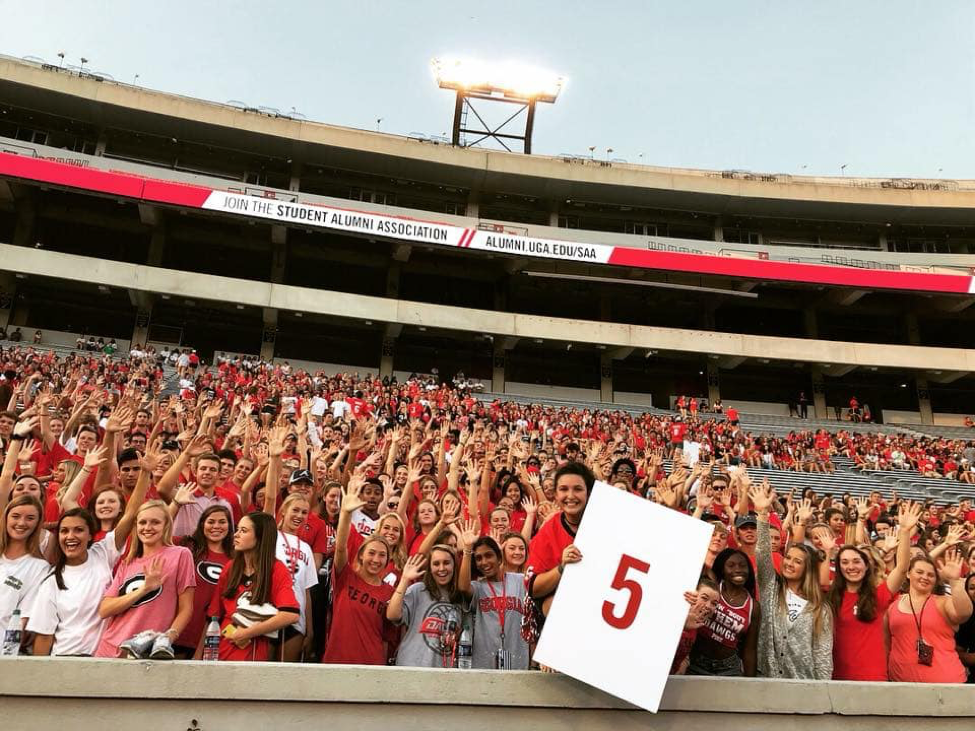Southern Food Association Panel
- Amanda Geraghty Regan

- Mar 18, 2021
- 3 min read
*Produced in 2018

ATHENS, GA
A panel of authors speaks at the University of Georgia about how food in the south shapes it’s people and culture.
Rosalind Bentley, an enterprise reporter for the Atlanta Journal-Constitution, was conducting the questionnaire for the panel, asking the four members of the Southern Food Association about the three new books in the series.
Sara Camp Miliam, the managing editor of the SFA, began the discussion by telling the audience some information about the alliance.
The SFA is and institute for the study of southern culture at the University of Mississippi for 20 years.
“Our mission is to document, study and explore the changing foodways of the American South,” Miliam said.
The SFA studies population demographics by looking at the past, present and future of southern food and how it evolves with culture. They have been publishing books with the UGA Press for about 10 years.
This series began with the “Cornbread Nation Series” which is an anthology of the best southern food writings that came out every other year continuing for seven volumes.
The studies were intended to be used to form a toolbox for a food studies class.
Each of the speakers read an exert from the book they wrote or assisted with, to give the audience a sense of the main topics.
André Joseph Gallant is an independent journalist who wrote, “A High Low Tide: The revival of a southern Oyster,” one of the books in the three-part series, regarding Georgia’s disappearing oyster industry.
“My book chronicles the folks who have been working to make sure that this doesn’t happen,” Gallant said.
After reading from his book, Gallant said that the south trained him to be a story teller. “I don’t need to buy a plane ticket to go report the stories of my dreams, they’re in my backyard,” he said.
Gallant said the south has a thick layer of nostalgia, regarding race and adversity, which inspired his writing for the book, along with his family history if shell fishing.
Julian Rankin spoke about his book, “Catfish Dream: Ed Scott’s Fight for his Family Farm and Racial Justice in the Mississippi Delta” in the series.
Rankin spent time with people called the “dependables” and wrote about their stories on the catfish industry in the Mississippi Delta.
Bentley asked Rankin how he established trust with the dependables while gathering their stories, and he said, “It’s a living thing, just like these stories always are” regarding the lifestyle of the dependables.
Dr. Thomas J. Ward Jr., a professor and chair of the history department at Spring Hill College in Mobile, Alabama, got involved with the SFA after he gave a talk at the University of Mississippi on a recent book of his. The director of the SFA asked him to be a part of the series.
Ward has written articles and assisted with research for the SFA.
“As I said I was not the author of this, although I would say it is an incredibly powerful project to be involved in even just the tiny bit that I was involved in,” he said.
Bentley asked the panel, specifically Miliam, who they look for to tell these stories.
“In a way that is not from a discoverer of a culture” Miliam said, “there are lenses that give you the chance to understand communities that are not your own.”
Mimi Vickers, a member of the UGA Press board was at the panel to listen to the speakers.
“I’m always interested in food and I’ve been following SFA for a while now,” she said, “I’m always a champion of people who can rise above adversity.”




Comments